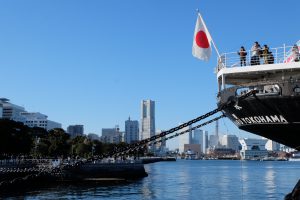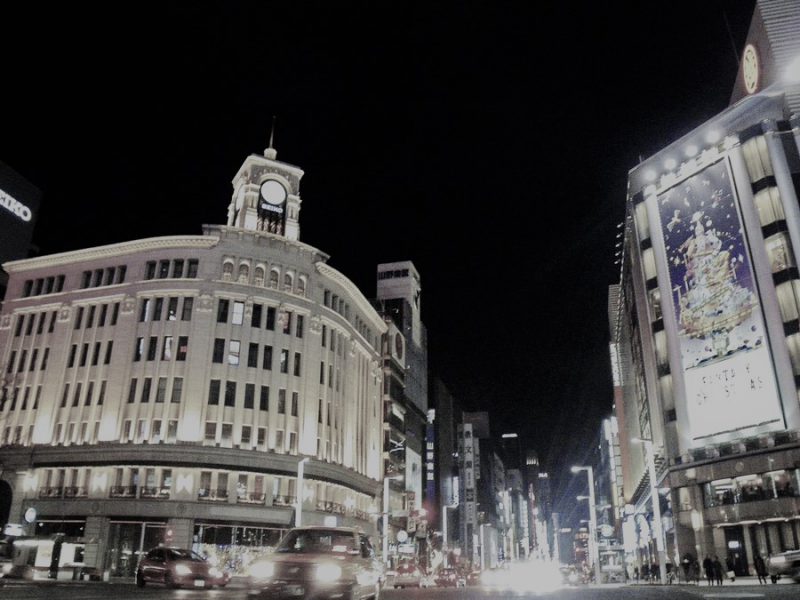At this time of year, you may see a lot of posters calling for Tax returns.
A Tax return is an important procedure to pay your income tax.
But you may not be familiar with it if you are employed by a company.
Let’s get into the outline of a Tax return and how to do it.
See this on YouTube↓
目次-Contents-
What is a Tax Return?
A Tax return is a procedure to pay income tax according to the money you earn from January to December.
You create a tax return sheet that shows “income(所得 Shotoku)” that it calculated income or sales(収入 Shunyu)minus necessary expenses(経費 Keihi)and the tax amount, and submit it to the tax office.
The tax bureau accepts your submission from February 16 to March 15.
Those who work as freelancers must file a Tax return.
On the other hand, a lot of company employees don’t have to do it.
Why are most of the employees exempt from a Tax return?
Because they pay their income taxes through their company.
When they receive a monthly salary and bonus, a tentative income tax is withheld from their income.
At the end of the year, the company will calculate the tax amount that reflects the “deduction” according to the number of dependents and the insurance premiums paid, and adjust the difference between the provisional income tax amount and the fixed one.
This procedure is called “the Year-end Adjustment”(年末調整 Nemmatsu-Chosei).
As a result of this Year-end Adjustment, employees are able to pay their income tax properly without a Tax return.
When are employees required to file a Tax return?
As mentioned, employees don’t have to file a Tax return in principle.
But if you meet any of the following conditions, you should do your Tax return.
✅Salary exceeds 20,000,000 yen annually.
✅Your income (sales minus cost) from your side business exceeds 200,000 yen annually.
This 200,000 yen is not the amount of money you received. It is the amount of sales minus the cost you spent on your business needs.
Let’s say you earn 210,000 yen while you spent 20,000 yen cost for your business, the income is 190,000 yen so that you don’t have to file a tax return.
✅Your company doesn’t do your Year-end Adjustment.
✅You quit your company by December 31, 2020.
In this case, your company doesn’t have to do your Year-end Adjustment. They just give you a Withholding slip(源泉徴収票 Gensen-Choshu-Hyo)instead.
You are required to file a tax return by yourself with the Withholding slip.
✅You sold your real estate and made a profit.
✅The amount of the maturity refund minus the premium paid exceeds 500,000 yen.
When are employees advised to file a Tax return?
If you meet any of the above conditions and fail to file a Tax return, it is illegal.
But if you are like, “I am an employee and my tax thing is done through my company, so the tax return is irrelevant to me.”, the money that is supposed to be returned will not be refunded.
That is simply a loss.
It is optional to file a Tax return to claim your money back.
Let’s take a look at items you can claim your money back.
✅Medical expenditure exceeds 100,000 yen.
The amount of your medical expenditure exceeding 100,000 yen is tax-exempt.
If you spend 120,000 yen on your medical service, 20,000 yen is not taxable.
But you have paid the tax through a Withholding tax from your monthly salary.
So you get a refund of the tax on the 20,000 yen.
✅You received a retirement allowance but didn’t submit a paper called “退職所得の受給に関する申告書”.
If you quit your job and your company gives you a retirement allowance, you have a chance to submit a document called 退職所得の受給に関する申告書” to enjoy a significant tax reduction.
But if you fail to submit it to your company before getting the money, 20.42% tax rate has been applied to your retirement income.
This tax amount is huge compared to the tax amount you would pay if you’d submitted the paper.
But don’t worry. You can claim your money back through a tax return.
✅You took out a loan and built a house.
You must file a tax return when you bought a house with a loan. But from next year, it can be done through a Year-end Adjustment.
✅You donated or did Furusato-nozei
After donating to a country or a city, they will send you a proof of donation.
You will file a tax return with the paper.
✅You forgot to claim your insurance premium deduction when your company did your Year-end Adjustment.
If you forgot to submit a deduction proof such as a life insurance premium to your company, don’t worry.
You can claim your tax reduction through a Tax return.
What are incomes that are not imposed taxes?
You might be at a loss as you are not sure if the income you earned is imposed a tax or not.
Followings are incomes you don’t have to pay the tax on them.
✅Bereaved family pension
This is the money a bereaved family member can receive after an insured person of health/pension insurance passes away.
✅Allowance for childbirth and childcare
When you give birth to a child, 420,000 yen will be given to you. This is a lump-sum payment.
✅Unemployment benefits
If you quit your job and can’t find a new place to work, at least 50% of the salary you had earned will be given to you.
You can receive this benefit for 90 days minimum, 150 days maximum.
The period depends on how many years you have worked for the company.
✅Condolence money for a funeral
✅Wedding money gift
✅Child-rearing allowance
If you have your child, the government grants you monthly 15,000 yen until the kid becomes 3 years old while 10,000 yen will be given until the kid graduates from junior high school.
✅Lottery prize
You don’t have to pay the tax even if you win a lottery.
But be careful. You’ve got to file a tax return if you earn money with horse racing, bicycle racing, and other public gambling.
Be careful when you…
✅Claim your tax back because you spend more than 100,000 yen on medical services while you have a less than 200,000 yen income from your side business.
As I mentioned, you have a right to claim your tax back when your medical expenditure exceeds 100,000 yen a year.
On the other hand, however, you don’t have to file a tax return when you earn less than 200,000 yen income from your side business.
But when you file a tax return because of your medical deduction, you must declare your income from your side business even if the income is 200,000 yen or less.
Let’s say your medical expenditure is 120,000 yen and your side business income is 100,000 yen.
Tax reduction thanks to your medical expenditure is 20,000 yen (120,000 minus 100,000) while the whole 100,000 yen side business income is taxable.
In this case, you want to give up your medical deduction and not to file a tax return so that you can avoid the taxation on your side business income.
✅Claim your tax back because you spend more than 100,000 yen on medical services while you donate to a town as “Furusato-nozei” through a so-called “One Stop special treatment(ワンストップ特例制度)”.
Basically, you are required to file a tax return when you did “Furusato-nozei”.
But if you choose to donate through a so-called “One Stop special treatment(ワンストップ特例制度)” and your company does your Year-end adjustment, you don’t need to file a tax return.
You just need to send a paper to the town where you donate. And your tax next year will be reduced according to the donation amount.
But if you file a tax return because of your medical deduction or any reason, your “One Stop special treatment” application becomes INVALID.
So when you file a tax return, definitely declare your “Furusato-nozei” as well.
To conclude;
Thank you for reading!
Today we discussed when you’ve got to file a tax return and the outline of non-taxable income.
Japanese taxation is so complex that you can hardly judge whether you have an obligation to pay the tax to the government or not.
Hope you enjoyed this blog.
Having any concerns like these with your accountant?
Your tax accountant…
- changes every year
- suggests no tax-saving measures
- doesn’t give you financial statements in a timely manner
- doesn’t explain the contents of the statements
- is reluctant to use the cloud software
- rarely shows up to your office
- is always late to answer your questions
- is elderly and you’re worried about the near future
Lack of communication with tax accountants can cause incorrect accounting processing due to the mess of the contents of the bookkeeping.
As a result, it increases the risk of additional taxation of up to 40% through a tax audit which is conducted once every 3 to 5 years.
To prevent from paying additional taxes, it is important to share accounting processing and the business environment with tax accountants on a daily basis and to take measures to address additional taxation risks at an early stage.
We, Masa Tax Consulting, not only consult on accounting contents but also provide tax audit preparing measures and proposals for tax-saving measures that are optimal for customers as the most casual/friendly tax accountant in Japan.
We now offer a free initial consultation and a first-month-free policy.
We do not force you to make any contract, so please feel free to contact us.
~The representative tax accountant will always respond responsibly.~




















